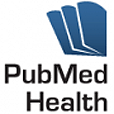 Whole plant cannabis extracts in the treatment of spasticity in multiple sclerosis: a systematic review
Whole plant cannabis extracts in the treatment of spasticity in multiple sclerosis: a systematic review
Review published: 2009.
Quality assessment
This review concluded that there was evidence that combined extracts of cannabis (delta9-tetrahydrocannabinol and cannabidiol) may provide therapeutic benefit for spasticity symptoms in patients with multiple sclerosis. In light of the good quality of the included trials, the authors’ cautious conclusions appear to be appropriate, although the small number of trials should be borne in mind. Full critical summary
Abstract
BACKGROUND: Cannabis therapy has been considered an effective treatment for spasticity, although clinical reports of symptom reduction in multiple sclerosis (MS) describe mixed outcomes. Recently introduced therapies of combined Delta9-tetrahydrocannabinol (THC) and cannabidiol (CBD) extracts have potential for symptom relief with the possibility of reducing intoxication and other side effects. Although several past reviews have suggested that cannabinoid therapy provides a therapeutic benefit for symptoms of MS, none have presented a methodical investigation of newer cannabinoid treatments in MS-related spasticity. The purpose of the present review was to systematically evaluate the effectiveness of combined THC and CBD extracts on MS-related spasticity in order to increase understanding of the treatment’s potential effectiveness, safety and limitations.
METHODS: We reviewed MEDLINE/PubMed, Ovid, and CENTRAL electronic databases for relevant studies using randomized controlled trials. Studies were included only if a combination of THC and CBD extracts was used, and if pre- and post-treatment assessments of spasticity were reported.
RESULTS: Six studies were systematically reviewed for treatment dosage and duration, objective and subjective measures of spasticity, and reports of adverse events. Although there was variation in the outcome measures reported in these studies, a trend of reduced spasticity in treated patients was noted. Adverse events were reported in each study, however combined TCH and CBD extracts were generally considered to be well-tolerated.
CONCLUSION: We found evidence that combined THC and CBD extracts may provide therapeutic benefit for MS spasticity symptoms. Although some objective measures of spasticity noted improvement trends, there were no changes found to be significant in post-treatment assessments. However, subjective assessment of symptom relief did often show significant improvement post-treatment. Differences in assessment measures, reports of adverse events, and dosage levels are discussed.
CRD has determined that this article meets the DARE scientific quality criteria for a systematic review.


